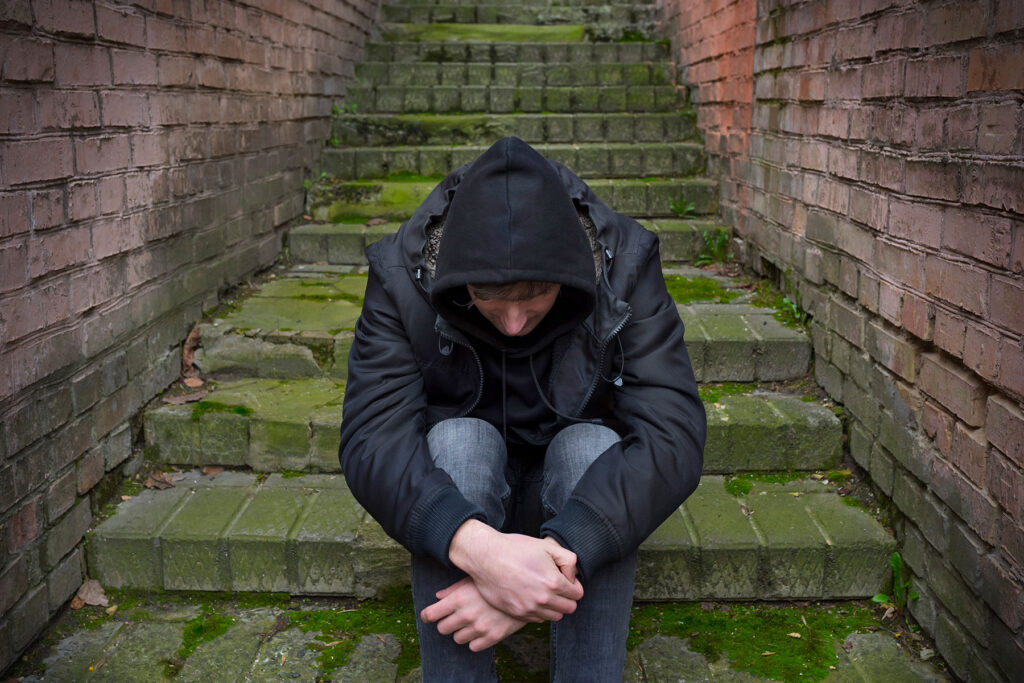Heroin is an extremely addictive and dangerous drug, and it has devastating effects on the individual who uses it and the people around them. The long-term effects of heroin use include physical, mental, and behavioral consequences that can be hard to manage.
BlueCrest Health Group offers a heroin addiction treatment program at our New Jersey rehab centers. QuickSilver Counseling Center and BlueCrest Recovery Center offer structured, supportive, and evidence-based care that is tailored to the individual needs of each client. Find help for you or a loved one today by calling 888.340.2214.
Why Heroin Is So Addictive
Heroin belongs to a class of drugs known as opioids, which are notorious for their high addictive potential. When a person uses heroin, it quickly enters the brain and binds to opioid receptors. These receptors are involved in feelings of pain and pleasure, as well as heart rate, sleeping, and breathing.
Heroin’s appeal lies in the intense rush of pleasure or “high” that it gives the person using it. However, with repeated use, the brain becomes accustomed to the drug, requiring more of it to achieve the same effect. This process, known as tolerance, leads to dependence and addiction.
The Short-Term Side Effects of Heroin
The immediate effects of heroin can include a surge of sensation—a “rush.” This is often accompanied by a warm flushing of the skin, dry mouth, and a heavy feeling in the extremities. Nausea, vomiting, and severe itching may also occur.
After the initial effects, individuals usually will be drowsy for several hours. Mental function is clouded by heroin’s effect on the central nervous system. Heart function slows, and breathing is also severely slowed, potentially to the point of death.
Long-Term Effects of Heroin Addiction
Long-term heroin use can have devastating effects on a person’s physical and mental health. People with a chronic addiction to the drug may experience the full range of the effects of heroin—physical, behavioral, and psychological.
Physical Symptoms
Regular heroin use causes significant changes in the body. Physical effects of long-term heroin use include:
- Insomnia
- Poor physical and mental coordination
- Heart problems, including collapsed veins and infections of the heart lining and valves
- Liver disease, including cirrhosis
- Kidney disease
- Respiratory infections, such as pneumonia or bronchitis
- Sexual dysfunction for men and irregular menstrual cycles for women
- Increased risk of diseases spread through shared needles
Physical symptoms are not the only consequences of long-term heroin use. People who are addicted to heroin may also experience psychological and behavioral changes.
Behavioral Symptoms
Long-term heroin use can have a severe impact on the emotions of an individual. Behavioral symptoms may include:
- Isolation from friends and family
- Loss of interest in activities or hobbies once enjoyed
- Feelings of guilt and shame about drug use
- Poor impulse control, such as impulsive decision making
- Difficulty managing stress
- Feelings of hopelessness and despair
These effects can be difficult to express or admit, making it especially important to offer help if you recognize the effects of heroin use in a loved one.
Psychological Symptoms
The psychological effects of long-term heroin use can be just as devastating as the physical. Psychological symptoms may include:
- Depression
- Anxiety
- Suicidal thoughts or attempts
- Memory loss
- Impaired cognitive ability
- Paranoia
- Disorientation
- Mood swings
Heroin addiction is a serious condition that can have profound consequences. If you or someone you know is struggling with heroin addiction, it’s important to get help right away.
How to Find Professional Help
If you or someone you know is struggling with a heroin addiction, it’s important to seek professional help immediately. Treatment options can vary and may include detoxification, medications, behavioral counseling, and long-term follow-up to prevent relapse.
Many organizations provide resources for finding treatment centers and support groups both online and in local communities. It’s crucial to remember that while heroin addiction is serious and life-threatening, recovery is possible with the right help and support.
Call BlueCrest Health Group to Find Heroin Addiction Help
BlueCrest Health Group offers comprehensive heroin addiction treatment at our New Jersey rehab centers. Our team of professionals provides evidence-based care that is tailored to the individual needs of each client. We are dedicated to helping you or your loved one achieve long-term sobriety and a healthy, drug-free life.
If you or someone you know is struggling with the effects of heroin addiction, don’t wait. Call BlueCrest Health Group today at 888.340.2214 or complete our online form to build a customized treatment plan and begin your journey toward recovery.

